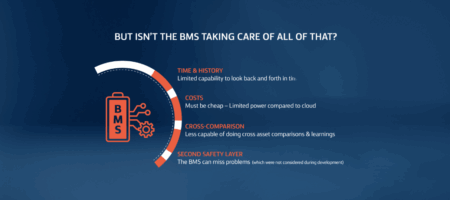
TÜV Nord Mobility and volytica diagnostics facilitate the largest used e-bus transaction of Europe to date
Dresden, 20.09.2022 – In the course of a restructuring of the public transport services, the BYD-build battery-powered vehicles, including the charging infrastructure, will be taken over by the new operator. With up to 50% of the value of an electric bus, the battery is the most expensive single wearing component, where quality and safety are critical. While the condition of combustion engine vehicles can be assessed more easily, access to accurate information about an electric vehicle’s propulsion system is still severely limited without proper analysis and diagnosis solutions, such as the ones offered by volytica in connection with TÜV Nord.
In the transaction, the parties assess the assets for a quality, safety and value determination of the whole vehicle including charging infrastructure, with a particular focus on the battery. In the long-term, the collaboration is intended to facilitate more of such transaction, which are anticipated to shoot up in the coming months and years, as whole fleets are being traded or coming to the end of their first usage period. While the current project is a one-time assessment, the partners strongly advocate for a continuous cooperation. This would enable greatly improved efficiency and safety of electric buses in both their first and second life.
“As an established independent inspection company, it is our aspiration to facilitate a green and sustainable energy and mobility transition – our experts are looking back on decades of assessment competences, and even the most complex and challenging tasks are just right for us. To meet market demands, we strengthen our cooperation with volytica and their intelligent battery diagnostics software, which complements our ability to offer our services in the electric vehicle sector,“ says Krzysztof Sitko, Head of Bus Business Development at TÜV Nord.
“We anticipated a wave of such reselling transactions almost a decade ago, when we were monitoring the first electric buses in Europe. It is proven today that only an independent battery quality assessment will lead to fair and transparent market prices, as battery assessment is a surprisingly complex and multileveled endeavor. Moreover, we see that by continuously monitoring this component, huge lifetime extension potentials can be raised, system reliability and safety increased and insurance and financing costs decreased. More economical batteries will boost the mobility transition – and save precious resources alongside,” says Claudius Jehle, CEO of volytica diagnostics.


